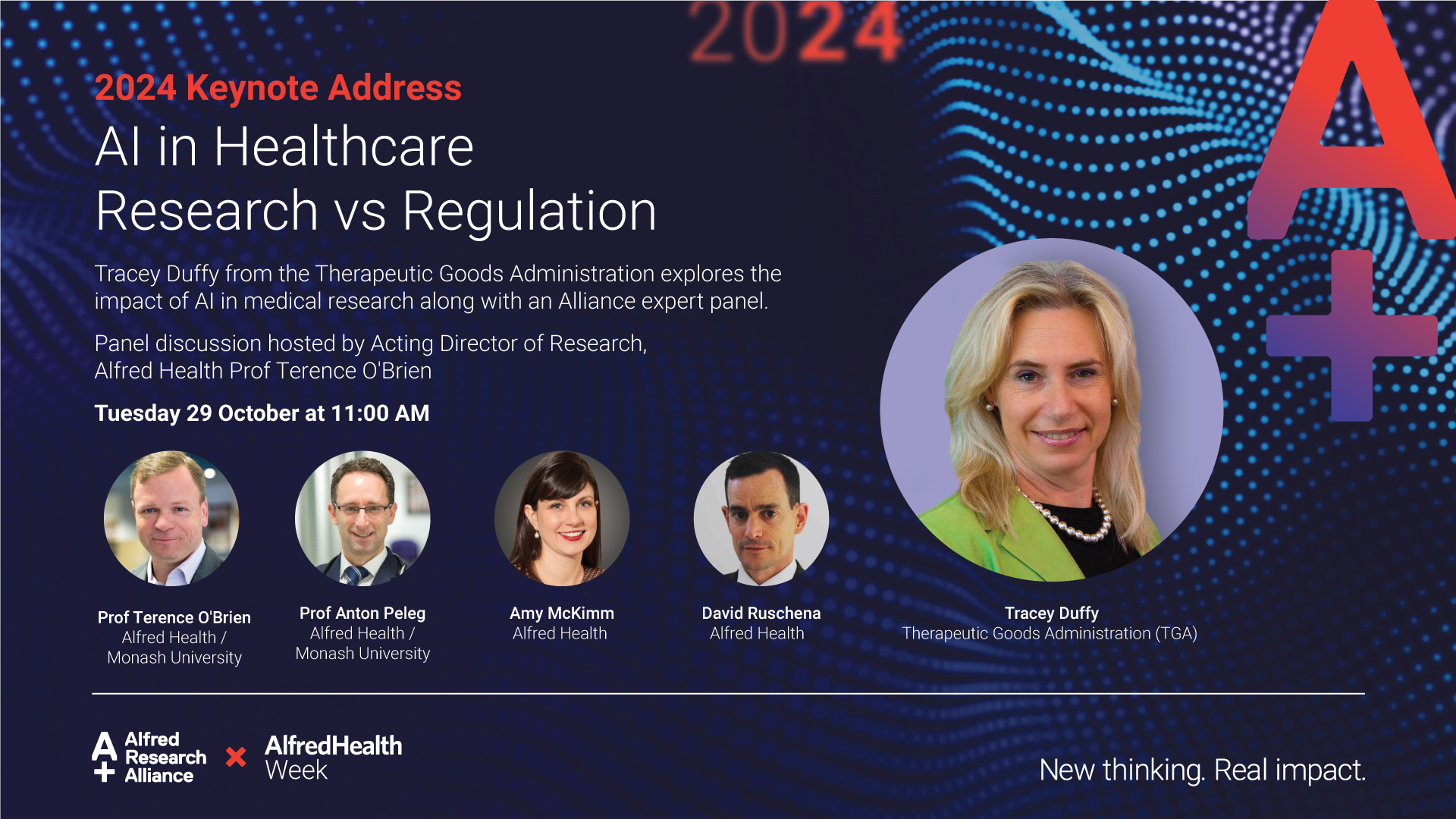Keynote Speaker: Tracey Duffy, TGA | Regulation vs research
What impact will AI regulation have on medical research? Watch the video to hear how you can stay on top of the evolving landscape.
Day two: Keynote address
First up, we heard from keynote speaker Tracey Duffy, who leads the Medical Devices and Product Quality Division at the Therapeutic Goods Administration (TGA) which includes software and AI. Tracey’s extensive experience also includes advisory roles in the Department of Health and the private sector, making her well-suited to provide insights on AI in medical research from a regulatory perspective.
Highlighting the importance of early engagement with the TGA during her address, Tracey also encouraged researchers to make sure their initial data collection processes were robust. She explained how the TGA regulates software and AI as well as evidence requirements. She then spoke to concerns and risks surrounding AI both for researchers and the public, the important role of clinicians, and outlined proposed guardrails and global regulation alignment.
Looking for guidance? Tracey provided some current resources and links at the 36-minute mark.
Panel discussion
Following the keynote address was a lively panel discussion with pertinent insights into ethical considerations and concerns, especially around difficulties with obtaining informed consent, the collection and ownership of data, and how data could and should be used.
Tracey Duffy was joined by 3 panellists from Alfred Health including, Prof Terrence O’Brien, Prof Anton Peleg, Amy McKimm and David Ruschena.
Research awards
Finally, the event wrapped up with a presentation of two of this year’s Alfred Health Research Week awards. The winners, Prof Diana Magliano Head of Diabetes and Population Health at Baker Heart and Diabetes Institute and Marcus Robinson from Monash University shared an overview of their work. The former sharing how they performed a systematic literature review that highlighted the global burden of diabetes and the importance of understanding risk factors. The latter sharing their research on plasma cell lifespan with a view to developing new treatments.

